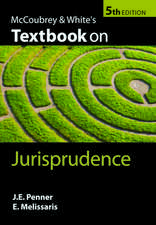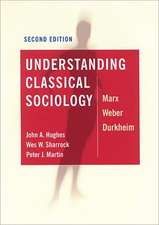The Time of the Tribes: The Decline of Individualism in Mass Society: Published in association with Theory, Culture & Society
Autor Michel Maffesolien Limba Engleză Paperback – 4 dec 1995
Din seria Published in association with Theory, Culture & Society
-
 Preț: 189.83 lei
Preț: 189.83 lei -
 Preț: 444.19 lei
Preț: 444.19 lei -
 Preț: 443.01 lei
Preț: 443.01 lei -
 Preț: 393.42 lei
Preț: 393.42 lei -
 Preț: 280.42 lei
Preț: 280.42 lei -
 Preț: 443.93 lei
Preț: 443.93 lei -
 Preț: 392.71 lei
Preț: 392.71 lei - 8%
 Preț: 445.18 lei
Preț: 445.18 lei -
 Preț: 307.51 lei
Preț: 307.51 lei -
 Preț: 426.57 lei
Preț: 426.57 lei -
 Preț: 393.17 lei
Preț: 393.17 lei -
 Preț: 394.42 lei
Preț: 394.42 lei - 18%
 Preț: 1491.48 lei
Preț: 1491.48 lei - 15%
 Preț: 480.56 lei
Preț: 480.56 lei - 15%
 Preț: 475.52 lei
Preț: 475.52 lei - 15%
 Preț: 486.73 lei
Preț: 486.73 lei - 18%
 Preț: 1364.13 lei
Preț: 1364.13 lei - 18%
 Preț: 1536.08 lei
Preț: 1536.08 lei - 18%
 Preț: 1491.65 lei
Preț: 1491.65 lei - 15%
 Preț: 487.56 lei
Preț: 487.56 lei - 15%
 Preț: 479.46 lei
Preț: 479.46 lei - 15%
 Preț: 479.78 lei
Preț: 479.78 lei - 15%
 Preț: 431.90 lei
Preț: 431.90 lei - 15%
 Preț: 487.05 lei
Preț: 487.05 lei - 18%
 Preț: 1229.47 lei
Preț: 1229.47 lei - 26%
 Preț: 926.65 lei
Preț: 926.65 lei - 18%
 Preț: 1234.14 lei
Preț: 1234.14 lei - 15%
 Preț: 480.44 lei
Preț: 480.44 lei -
 Preț: 479.85 lei
Preț: 479.85 lei - 15%
 Preț: 479.27 lei
Preț: 479.27 lei - 18%
 Preț: 1203.04 lei
Preț: 1203.04 lei - 15%
 Preț: 479.13 lei
Preț: 479.13 lei - 18%
 Preț: 1126.63 lei
Preț: 1126.63 lei - 18%
 Preț: 1234.14 lei
Preț: 1234.14 lei - 15%
 Preț: 478.44 lei
Preț: 478.44 lei - 15%
 Preț: 478.12 lei
Preț: 478.12 lei - 15%
 Preț: 448.04 lei
Preț: 448.04 lei - 18%
 Preț: 1321.90 lei
Preț: 1321.90 lei - 19%
 Preț: 419.03 lei
Preț: 419.03 lei - 18%
 Preț: 886.71 lei
Preț: 886.71 lei - 18%
 Preț: 1182.37 lei
Preț: 1182.37 lei - 18%
 Preț: 1321.58 lei
Preț: 1321.58 lei - 18%
 Preț: 1074.21 lei
Preț: 1074.21 lei - 15%
 Preț: 428.79 lei
Preț: 428.79 lei -
 Preț: 482.14 lei
Preț: 482.14 lei - 15%
 Preț: 466.03 lei
Preț: 466.03 lei - 18%
 Preț: 1141.40 lei
Preț: 1141.40 lei -
 Preț: 477.89 lei
Preț: 477.89 lei
Preț: 466.52 lei
Preț vechi: 548.84 lei
-15% Nou
Puncte Express: 700
Preț estimativ în valută:
89.27€ • 93.45$ • 73.86£
89.27€ • 93.45$ • 73.86£
Carte tipărită la comandă
Livrare economică 05-19 aprilie
Preluare comenzi: 021 569.72.76
Specificații
ISBN-13: 9780803984745
ISBN-10: 080398474X
Pagini: 192
Ilustrații: black & white illustrations
Dimensiuni: 156 x 234 x 11 mm
Greutate: 0.29 kg
Ediția:First Edition
Editura: SAGE Publications
Colecția Sage Publications Ltd
Seria Published in association with Theory, Culture & Society
Locul publicării:London, United Kingdom
ISBN-10: 080398474X
Pagini: 192
Ilustrații: black & white illustrations
Dimensiuni: 156 x 234 x 11 mm
Greutate: 0.29 kg
Ediția:First Edition
Editura: SAGE Publications
Colecția Sage Publications Ltd
Seria Published in association with Theory, Culture & Society
Locul publicării:London, United Kingdom
Recenzii
`An adventurous and stimulating discussion. Essential reading' - Journal of the Royal Anthropological Institute
`This book is not a piece of conventional social science, and it should not be judged against standard criteria. It is less a theoretical introduction than a pamphlet. This is not to minimise its role, for pamphlets have an important function in political and public discourse: they thematise problems, they exaggerate and they focus attention on repressed or latent knowledge.... Social scientists should read the book because it presses them to think about the alternative between tribalism and argumentative discourse and to make a choice' - Klaus Eder, Work, Employment & Society
`A very welcome and entirely original addition to this literature. Maffesoli's at times frustrating, at times brilliant essay... I recommend his discussion of tribes and tribalism highly. The book will be an important starting point for any discussion of modern communities' - Sociology
`In this ambitious and provocative book, Maffesoli explores the persistence and the centrality of an affective, solidary space of sociality that emerges from the small-group contexts of everyday life... this is a book that should provoke challenging and fruitful questions for those studying civil society, community, religion, or the "new social movements"' - American Journal of Society
`An adventurous and stimulating discussion. Essential reading' - Journal of the Royal Anthropological Institute
`In Maffesoli we encounter a social theorist pre-occupied with the emergence of new tribes and the need for a sociology of everyday life with explanatory purchase in the late twentieth century. In the rise fo a plethora of elective affinity groups (his tribes) he foreshadows the end of both the state and the individual as new communities are established within the interstices of complex societies. To any one with an interest in re-positioning anarchism with in the context of debates about postmodernity this is essential reading.... the work takes the form of an open essay which is accessible and immensely thought-provoking.... For any one attempting to understand and assess the significance of diverse groups from new militias in the USA to environmental movements and consumer cultures this is a vital book' - Anarchist Studies
`This book is not a piece of conventional social science, and it should not be judged against standard criteria. It is less a theoretical introduction than a pamphlet. This is not to minimise its role, for pamphlets have an important function in political and public discourse: they thematise problems, they exaggerate and they focus attention on repressed or latent knowledge.... Social scientists should read the book because it presses them to think about the alternative between tribalism and argumentative discourse and to make a choice' - Klaus Eder, Work, Employment & Society
`This text should be received as not so much setting an agenda as opening up an arena of research. Not only does Maffesoli's work take us to the heart of ethics within social life, but reveals insights into what we currently only know as a horror which pushes us away and discourages analysis by placing a barrier of unspeakable emotion over the processes of development and implementation of late twentieth century atrocities and genocide in the name of a society-level phenomenon which appears very similar to the micro-scale of tribus. Maffesoli's work undertakes a critique of academicism and dogma within sociology.... Maffesoli's work will appear to the English reader as highly academic... At first its pretension excludes and intimidates, but this breaks down very quickly into the warmth of a shared vision, for this is truly an intimate sociology' - Rob Shields (from the foreword)
`According to Maffesoli, the ambience of the postmodern era, its underlying paradox, is built upon the fundamental tension between massification and "groupism". The break-up of mass culture has led to the development of fragmentized "little masses"; Maffesoli agrees that social existence is indeed alienated, subject to the penetrations of a multiform power; nevertheless, he argues eloquently that there are still remains an affirmative puissance that, despite everything, confirms the `ever-renewed game of solidarity and reciprocity'. Maffesloi's book is one of the most important contributions to the discourse of cultural sociology to come on the scene' - Acta Sociologica
`The French version of this book is considered to be a classic of its genre, so it can be questioned why the English version had to be waited on for so long. Maffesoli's discourse fits in the late 1980s contestations of modernity, which is now in a way old news. Still, his contribution deserves acknowledgment, as he not only uses but also develops further the theories and concepts of Schmalenbach, Weber, Goffman, Durkheim, Bergson and others to arrive at a theory of his own that is full of new ideas for reaching a theoretical and practical understanding of life in contemporary societies, a life which no longer can be captured in concepts solely related to modernity' - Nationalism and Ethnic Politics
`This book is not a piece of conventional social science, and it should not be judged against standard criteria. It is less a theoretical introduction than a pamphlet. This is not to minimise its role, for pamphlets have an important function in political and public discourse: they thematise problems, they exaggerate and they focus attention on repressed or latent knowledge.... Social scientists should read the book because it presses them to think about the alternative between tribalism and argumentative discourse and to make a choice' - Klaus Eder, Work, Employment & Society
`A very welcome and entirely original addition to this literature. Maffesoli's at times frustrating, at times brilliant essay... I recommend his discussion of tribes and tribalism highly. The book will be an important starting point for any discussion of modern communities' - Sociology
`In this ambitious and provocative book, Maffesoli explores the persistence and the centrality of an affective, solidary space of sociality that emerges from the small-group contexts of everyday life... this is a book that should provoke challenging and fruitful questions for those studying civil society, community, religion, or the "new social movements"' - American Journal of Society
`An adventurous and stimulating discussion. Essential reading' - Journal of the Royal Anthropological Institute
`In Maffesoli we encounter a social theorist pre-occupied with the emergence of new tribes and the need for a sociology of everyday life with explanatory purchase in the late twentieth century. In the rise fo a plethora of elective affinity groups (his tribes) he foreshadows the end of both the state and the individual as new communities are established within the interstices of complex societies. To any one with an interest in re-positioning anarchism with in the context of debates about postmodernity this is essential reading.... the work takes the form of an open essay which is accessible and immensely thought-provoking.... For any one attempting to understand and assess the significance of diverse groups from new militias in the USA to environmental movements and consumer cultures this is a vital book' - Anarchist Studies
`This book is not a piece of conventional social science, and it should not be judged against standard criteria. It is less a theoretical introduction than a pamphlet. This is not to minimise its role, for pamphlets have an important function in political and public discourse: they thematise problems, they exaggerate and they focus attention on repressed or latent knowledge.... Social scientists should read the book because it presses them to think about the alternative between tribalism and argumentative discourse and to make a choice' - Klaus Eder, Work, Employment & Society
`This text should be received as not so much setting an agenda as opening up an arena of research. Not only does Maffesoli's work take us to the heart of ethics within social life, but reveals insights into what we currently only know as a horror which pushes us away and discourages analysis by placing a barrier of unspeakable emotion over the processes of development and implementation of late twentieth century atrocities and genocide in the name of a society-level phenomenon which appears very similar to the micro-scale of tribus. Maffesoli's work undertakes a critique of academicism and dogma within sociology.... Maffesoli's work will appear to the English reader as highly academic... At first its pretension excludes and intimidates, but this breaks down very quickly into the warmth of a shared vision, for this is truly an intimate sociology' - Rob Shields (from the foreword)
`According to Maffesoli, the ambience of the postmodern era, its underlying paradox, is built upon the fundamental tension between massification and "groupism". The break-up of mass culture has led to the development of fragmentized "little masses"; Maffesoli agrees that social existence is indeed alienated, subject to the penetrations of a multiform power; nevertheless, he argues eloquently that there are still remains an affirmative puissance that, despite everything, confirms the `ever-renewed game of solidarity and reciprocity'. Maffesloi's book is one of the most important contributions to the discourse of cultural sociology to come on the scene' - Acta Sociologica
`The French version of this book is considered to be a classic of its genre, so it can be questioned why the English version had to be waited on for so long. Maffesoli's discourse fits in the late 1980s contestations of modernity, which is now in a way old news. Still, his contribution deserves acknowledgment, as he not only uses but also develops further the theories and concepts of Schmalenbach, Weber, Goffman, Durkheim, Bergson and others to arrive at a theory of his own that is full of new ideas for reaching a theoretical and practical understanding of life in contemporary societies, a life which no longer can be captured in concepts solely related to modernity' - Nationalism and Ethnic Politics
Cuprins
Foreword - Rob Shields
Masses or Tribes
By Way of Introduction
The Emotional Community
Research Arguments
The Underground <i>Puissance
Sociality vs the Social
Tribalism
Polyculturalism
Of Proxemics
Appendix: The Thinking of the Public Square
Masses or Tribes
By Way of Introduction
The Emotional Community
Research Arguments
The Underground <i>Puissance
Sociality vs the Social
Tribalism
Polyculturalism
Of Proxemics
Appendix: The Thinking of the Public Square
Notă biografică
Michel Maffesoli is Professor of Sociology at the Centre d¿Etudes sur l¿Actuel at le Quotidean, UER de Sciences Sociales, Paris.
Descriere
In this exciting book Michel Maffesoli argues that the conventional approaches to understanding solidarity and society are deeply flawed. He contends that mass culture has disintegrated and that today social existence is conducted through fragmented tribal groupings, organized around the catchwords, brand-names and sound-bites of consumer culture. The book provides a rich backcloth against which to consider the rise of `identity politics' and the `proliferation of lifestyle cultures'.















